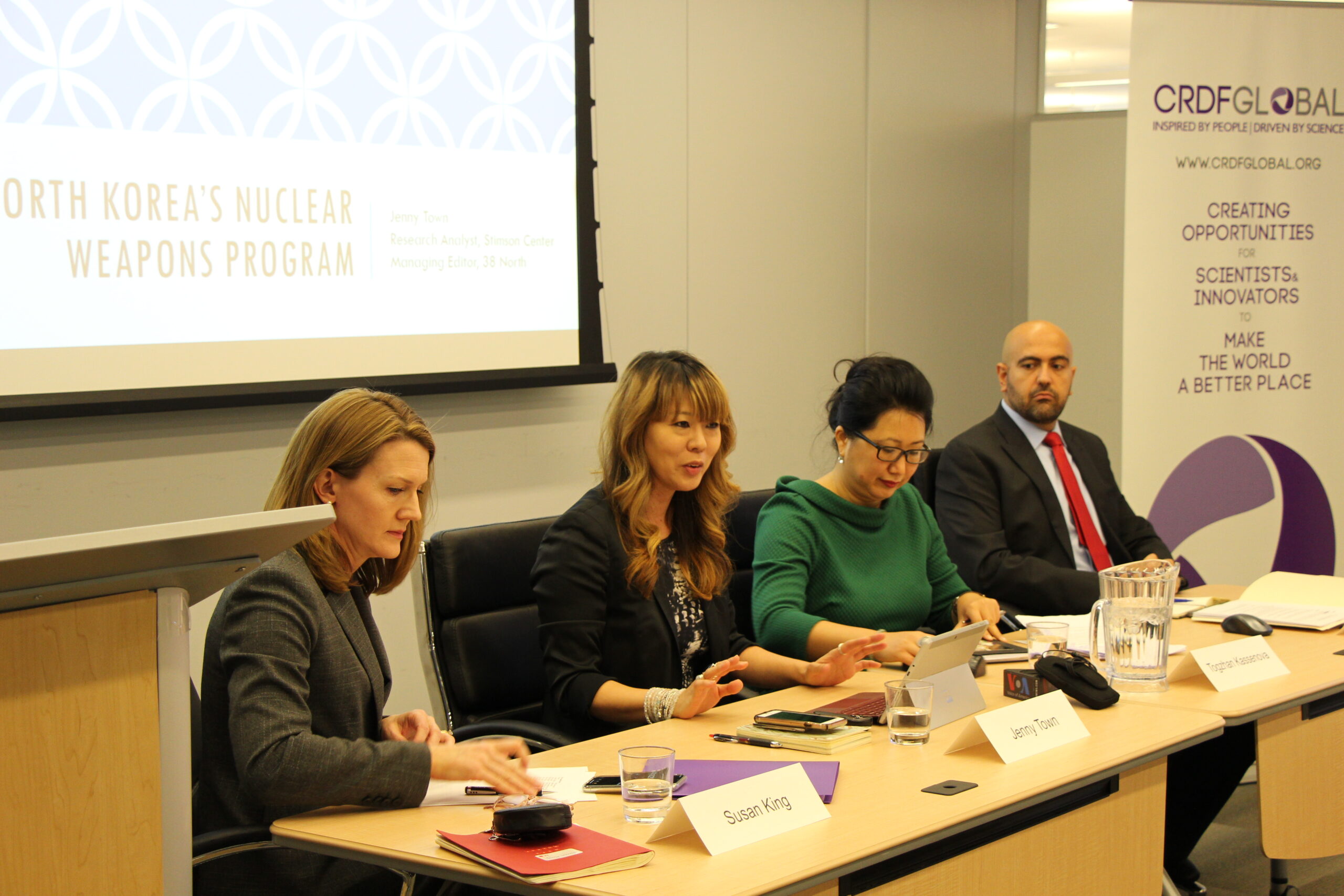North Korea Sanctions Enforcement Challenge: Avoiding Financial Derisking

As UN Security Council Resolutions targeting North Korea’s nuclear weapon and missile programs evolve and expand, many countries are challenged to build robust compliance programs across a range of industries. Developing countries often find themselves caught in the crossfire when sanctions and other forms of economic leverage are deployed to pressure countries of proliferation concern. Their ability to develop robust compliance frameworks can factor heavily in their ability to maintain access to the global financial system, as banks in the United States and Europe work to reduce their potential exposure to penalties for noncompliance. Sanctions, while well-intended from an international security perspective, can negatively affect progress towards other international development goals – including financial inclusion for women and other disadvantaged populations.
To address these challenges and develop a set of recommendations to overcome them, CRDF Global hosted a series of events to convene experts to discuss how developing countries, financial institutions, and the nonproliferation community can meet nonproliferation and UN Security Council Resolution obligations as well as development goals without restricting access to financial services. These events were made possible by the generous support of the United Kingdom Foreign and Commonwealth Office.
Please click here for a summary of the roundtable discussions.
Recommendations
Throughout each event, participants and speakers discussed a variety of challenges that essentially can be grouped into four key themes: prioritize proliferation finance, increase information-sharing, provide implementation resources, and coalesce political and business buy-in. Specific recommendations for each of these four themes are:
Prioritize Proliferation Finance
Align National Legislation with UNSCR Obligations: Swiftly enact domestic legislation in each country that matches UNSCR requirements to establish the legal basis for companies to follow new sanctions and for governments to prosecute violations.
Incorporate Proliferation Finance into Risk Management: Financial institutions should firmly incorporate proliferation finance considerations within their overall risk management strategy.
Identify Alternative Screening Methods for Proliferation Finance: Screening against sanctions lists is often not an adequate method for a financial institution to detect an illicit proliferation-related transaction. Financial institutions should move toward using intuitive electronic platforms for compliance checks that go beyond just screening new accounts against a sanctions list. While initially expensive, the programs run more efficiently over time and reduce the risk of being exposed to sanctioned entities.
Evaluate Proliferation Risks Beyond Sanctions: Governments need to discuss proliferation risks as a whole, rather than piecemeal, and implement proliferation finance legislation that accounts for the entire proliferation finance picture inclusive of sanctions.
Increase Information-Sharing
Build Stronger Public-Private Partnerships: Follow the U.K. approach on counterproliferation finance to engage both government regulators and technical experts who can provide guidance to financial firms.
Address Lawful Information-Sharing in Legislation: Privacy laws often prevent financial institutions from sharing information relevant to sanctions evasion. Sanctions enforcement legislation should include lawful methods for sharing information required to investigate and prosecute sanctions evaders, especially with cross-border governments.
Disseminate Information on North Korea’s Evasion Tactics: North Korea uses a variety of tactics to avoid UN sanctions and the government and private sector need to follow the latest trends, such as: North Korean procurement managers operating in 3rd party countries or under the cover of diplomatic embassies, transferring funds through personal bank accounts, and comingling funds from illicit and licit activities.
Provide Implementation Resources
Counterproliferation Finance is a Universal Challenge: Even large financial institutions struggle with sanctions implementation, but there are resources available for countries and companies to learn more, such as FATF guidelines, UN Panel of Expert reports, and requesting assistance from the UN 1540 Committee.
Create Training Opportunities for Private Sector: Provide training to compliance officers at financial institutions on know-your-customer and due diligence screening techniques to identify red flags of DPRK illicit activities.
Provide Implementation Resource Packages to Developing Countries: As new sanctions are rolled out, a complimentary resource package for developing countries to implement those sanctions should be provided as well. Addressing implementation as a part of the sanctions resolution will ensure more even implementation and compliance and therefore have greater efficacy.
Coalesce Buy-In from Political and Business Actors
Incentivize Good Behavior: Each sanctions resolution should be explicitly tied to a specific change in behavior which the sanctions are attempting to achieve. In the North Korea case, it is unclear which specific behavior would lift which resolution because all are currently tied to the goal of denuclearization of the Korean peninsula.
Explore Dialogue as an Alternative to Sanctions: The current sanctions regime is having a deleterious effect on the North Korean population due to the difficulty aid organizations now face getting humanitarian aid into North Korea. Dialogue should be considered a stand-alone alternative to sanctions to avoid the negative humanitarian impact currently occurring.
Implement Sanctions that have Required Buy-In: The current lack of political and business will to fully implement and enforce sanctions on North Korea undermines the effectiveness of the sanctions regime and indicates that perhaps an alternate course of action could have yielded similar results. Sanctions without unified political will not have the economic impact needed to drive changes in North Korea’s behavior.



